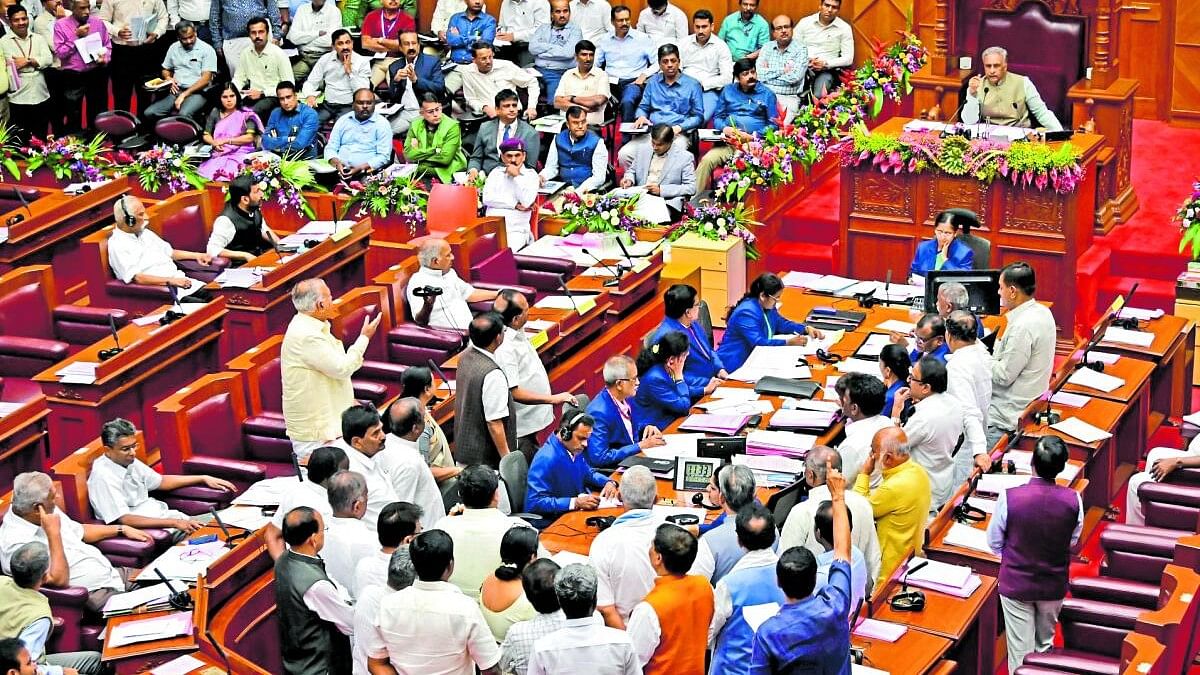
Winter session of Karnataka Legislative Assembly.
Credit: DH Photo
Belagavi: A report tabled in the Karnataka Assembly on Wednesday said several communities, including a few dominant ones in the state, have been availing reservation and other benefits under the SC and ST categories, using fake caste certificates.
It noted that the practice of untouchability was still prevalent in the state.
Reports submitted by revenue officials and staff without carrying out proper surveys in some parts of the state, is the reason for the increase in fake caste certificates, it said.
The first and interim report of the SC/ST Welfare Committee, tabled in the House, lists 12 communities, including Brahmins, Veerashaiva-Lingayats, and Kurubas, in the state that have fake caste certificates.
Also named in the report are : Banajigas (a sub-sect of Lingayats), Kaniyars, Mudaliyars, Dombidasa, along with some from the Kuruba community-- who come under the 2A category of reservation meant for Other Backward Castes (OBC), were found to have been issued caste certificates under the Scheduled Tribe (ST) category by classifying them as Gond, Rajagond, Kadukuruba or Jenukuraba.
The Maaleru sect of Brahmins were found to be availing of ST certificates by identifying themselves as Maleru, an ST group.
Earlier criminal cases were registered against those availing fake caste certificates. But now, FIRs are also filed against issuing authorities, the report said. So far, FIRs have been filed against 175 tahsildars for issuing fake caste certificates.
The report stated that 'even today untouchability was not eradicated completely in many parts of the state,' without elaborating.